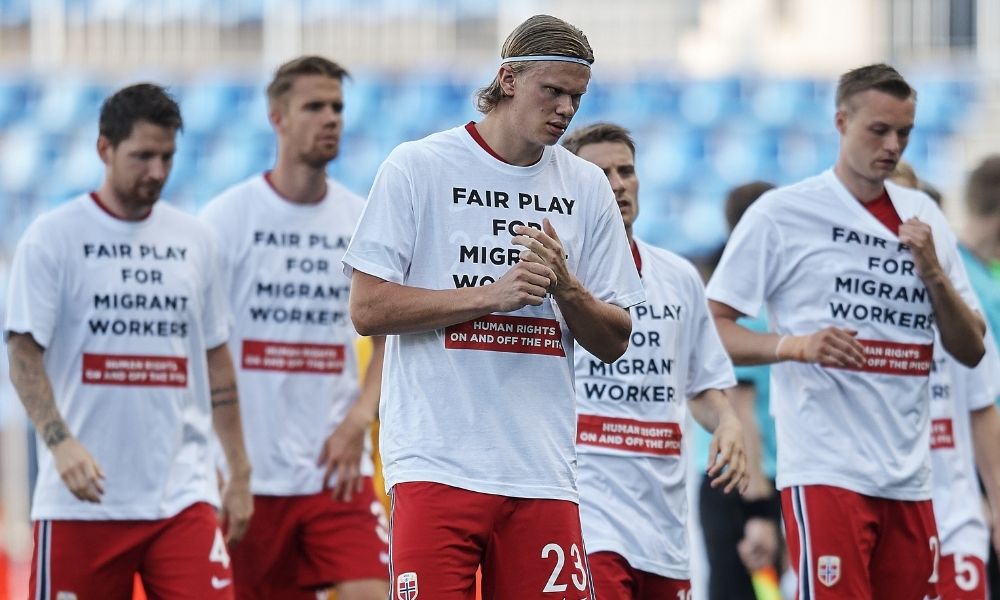Qatar’s World Cup “Sportswashing” Fails to Improve International Reputation
In a recent op-ed entitled “What did Qatar actually get out of the billions spent on the World Cup,” economics professor from the College of the Holy Cross, Victor Matheson, speculates on the potential returns of Qatar’s estimated $300-400 billion investment in preparing for the 2022 World Cup. Matheson argues that the most plausible explanation for Qatar’s investment is to promote its international image in a process called “sportswashing” whereby countries of authoritarian governments vie for international goodwill by hosting popular sporting events.
Events like the World Cup rarely bring in much money for the host country itself; Matheson estimates that while FIFA will see nearly $6.5 billion from media rights and sponsorships, Qatar’s tourism revenue from the World Cup games will cover less than 2% of their preparation costs. Further, due to Qatar’s small population and general lack of interest in sports, the seven stadiums erected for the World Cup games will be repurposed or downsized. One stadium, Stadium 974, will be demolished after the last game.
Matheson argues that while the primary benefit of hosting the World Cup is reputational, the popular narrative surrounding the event has been less than positive. Before the games started, Qatar came under mass scrutiny once information emerged that thousands of immigrant labourers who constructed the World Cup infrastructure toiled under conditions compared to modern-day slavery. Additionally, Qatar’s conservative politics have drawn attention. Despite advertising itself as welcoming to fans, Qatari laws punish same-sex relationships, seeing soccer fans denied entry to matches for wearing T-shirts or armbands in rainbow colours.

